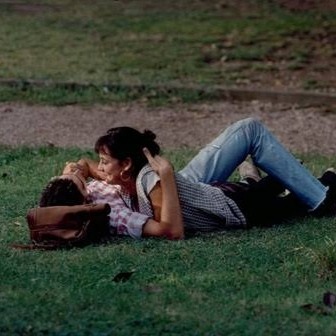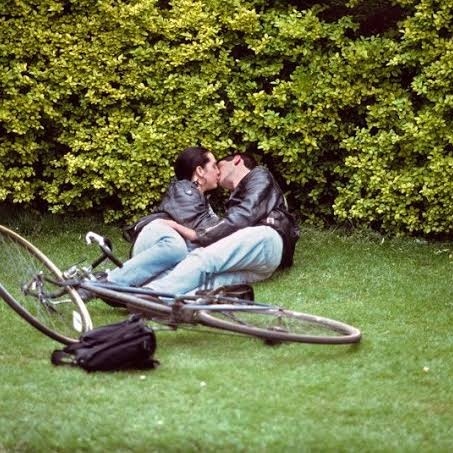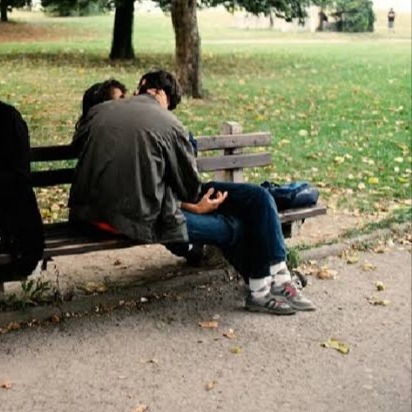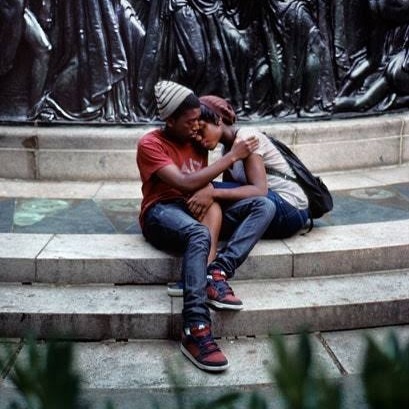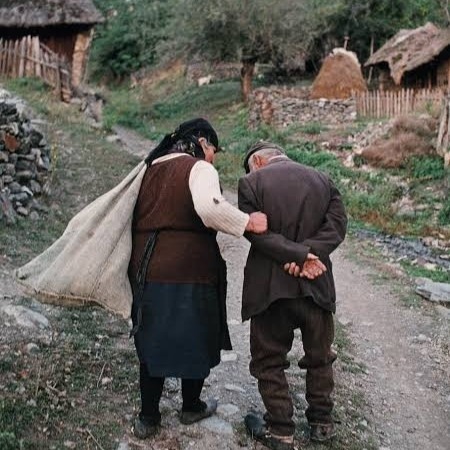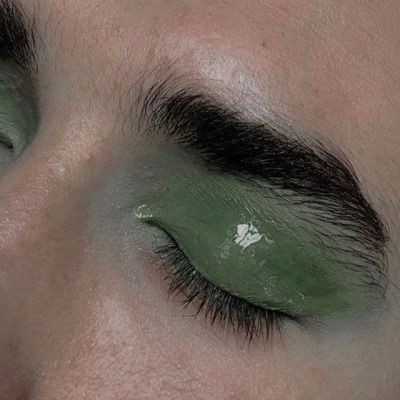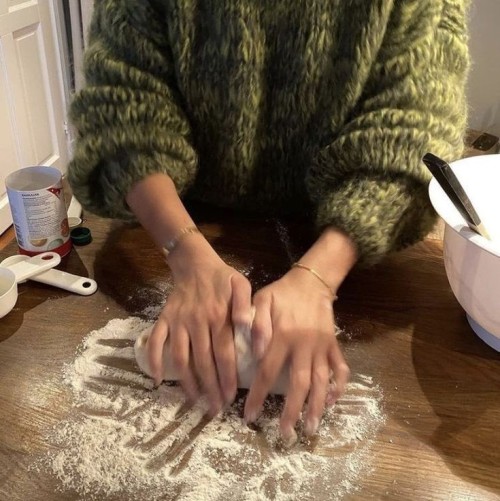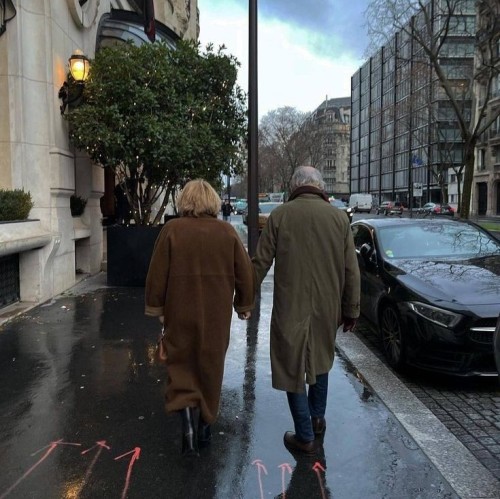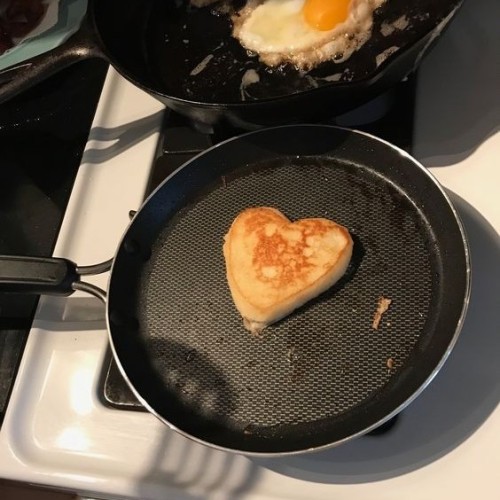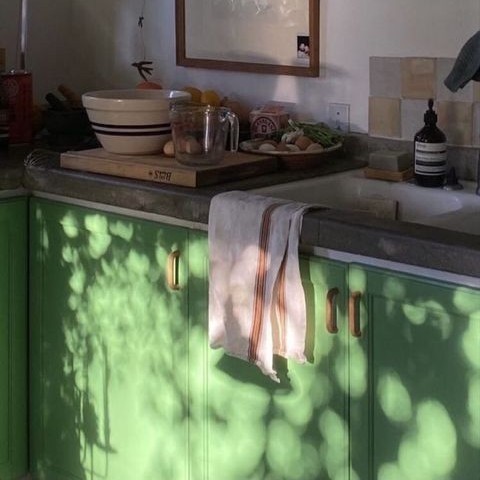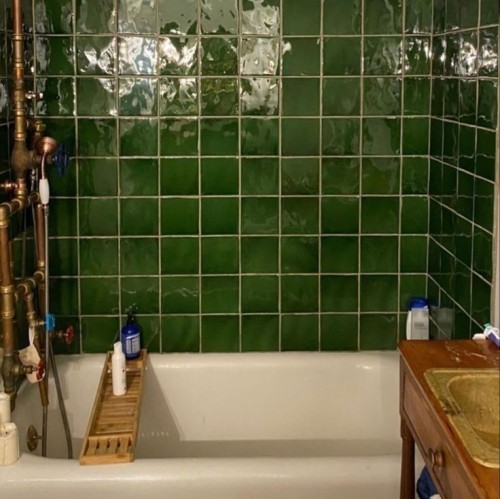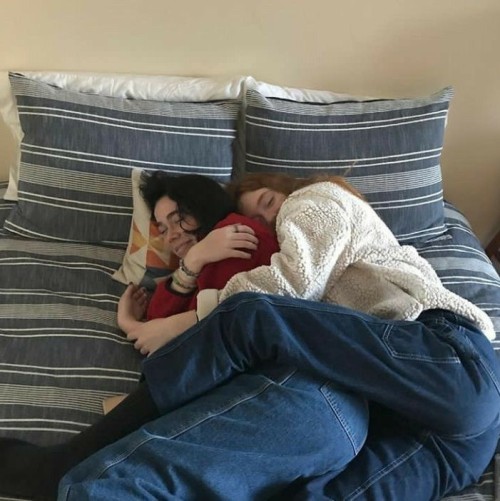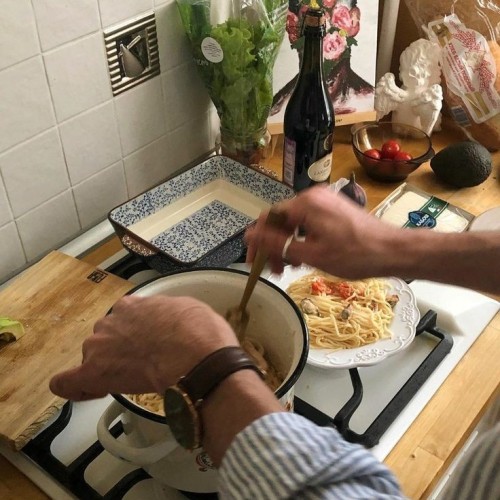
overgrown bat, occultist, alchemist, aspiring potion maker, least but not last, poet.
172 posts
Latest Posts by stibnium - Page 6


Yellow Irises by Claude Monet + Daffodils by William Wordsworth
I think the people who say “You don’t need to be critical of every piece of media you consume” fundamentally misunderstand what we mean by “critical”.
When we say “be critical of the media you consume” we don’t mean “be negative” as in, find every flaw and pick it apart CinemaSins style.
We mean “examine it”. Like, look at what you are consuming, and in many cases, enjoying, and ask yourself why you are enjoying it. Ask yourself who made it. Ask yourself if you are the target audience. Ask yourself if you are being represented by the characters you see. Ask yourself if the author has biases or political leanings they are trying to include in the story.
Just, ask yourself questions. The answers don’t have to be negative. That’s not what being critical means.



































your hand touching mine. this is how galaxies collide. ― Sanober Khan
― Carolyn Forché / Katatsumori (Naomi Kawase, 1994) / John Berger / Katrien de Blauwer / Hélène Cixous / Bruno Munari / Eli Craven / Sharon Olds / Hart Crane / A Hidden Life (Terrence Malick, 2019) / Mary Ruefle / Robert Bly / Hans Bellmer / Richard Siken / Eli Craven / Cassandra Clare / Katrien de Blauwer / Louise Glück ―










Agnes Giberne - The Story of the Sun, Moon, and Stars.






theology of the universe










even in death we do not part
𝘐𝘯 𝘈 𝘞𝘦𝘦𝘬 - 𝘏𝘰𝘻𝘪𝘦𝘳 | 𝘭𝘦𝘧𝘵 𝘵𝘰 𝘣𝘦 𝘧𝘰𝘳𝘨𝘰𝘵𝘵𝘦𝘯 - 𝘤𝘰𝘳𝘯𝘧𝘭𝘢𝘬𝘦𝘴𝘥𝘰𝘦𝘴𝘢𝘳𝘵 | “𝘚𝘰 𝘭𝘰𝘯𝘨, 𝘸𝘦’𝘥 𝘣𝘦𝘤𝘰𝘮𝘦 𝘵𝘩𝘦 𝘧𝘭𝘰𝘸𝘦𝘳𝘴” - 𝘮𝘦𝘨𝘢𝘯𝘭𝘶𝘥𝘥𝘺𝘪𝘭𝘭𝘶𝘴𝘵𝘳𝘢𝘵𝘪𝘰𝘯 | 𝘔𝘢𝘺 𝘚𝘸𝘦𝘯𝘴𝘰𝘯 | 𝘚𝘦𝘭𝘧-𝘤𝘢𝘳𝘦 - 𝘮𝘪𝘭𝘴𝘢𝘦 | 𝘖𝘭𝘢𝘷𝘪 𝘓𝘢𝘯𝘶 | | 𝘮𝘦𝘮𝘰𝘳𝘪𝘢𝘭 𝘵𝘰 𝘢 𝘮𝘢𝘳𝘳𝘪𝘢𝘨𝘦 | 𝘓𝘰𝘷𝘦𝘳𝘴 𝘰𝘧 𝘝𝘢𝘭𝘥𝘢𝘳𝘰 | 𝘚𝘭𝘦𝘦𝘱𝘪𝘯𝘨 𝘐𝘯 𝘛𝘩𝘦 𝘍𝘰𝘳𝘦𝘴𝘵 - 𝘔𝘢𝘳𝘺 𝘖𝘭𝘪𝘷𝘦𝘳 | 𝘚𝘢𝘪𝘯𝘵 𝘚𝘦𝘪𝘺𝘢 | 𝘺𝘰𝘶 𝘢𝘳𝘦 𝘳𝘰𝘵𝘵𝘪𝘯𝘨 𝘧𝘭𝘦𝘴𝘩 𝘢𝘯𝘥 𝘺𝘰𝘶 𝘢𝘳𝘦 𝘣𝘦𝘢𝘶𝘵𝘪𝘧𝘶𝘭 - 𝘭𝘪𝘯𝘴𝘦𝘦𝘥𝘭𝘪𝘯𝘨 | “𝘋𝘰 𝘠𝘰𝘶 𝘞𝘢𝘯𝘵 𝘛𝘰 𝘋𝘪𝘦 𝘛𝘰𝘨𝘦𝘵𝘩𝘦𝘳?” 𝘚𝘵𝘢𝘳𝘴 | 𝘗𝘩𝘪𝘭𝘪𝘱 𝘓𝘢𝘳𝘬𝘪𝘯 | 𝘑𝘦𝘴𝘴𝘪𝘦 𝘏𝘴𝘶 𝘢𝘯𝘥 𝘑𝘦𝘢𝘯 𝘊𝘩𝘢𝘯𝘨 - 𝘡𝘩𝘰𝘯𝘨 𝘓𝘪𝘯 | 𝘩𝘶𝘮𝘮𝘪𝘯𝘨𝘣𝘪𝘳𝘥 - 𝘡𝘩𝘰𝘯𝘨 𝘓𝘪𝘯 | 𝘋𝘦𝘢𝘵𝘩 𝘞𝘪𝘭𝘭 𝘓𝘦𝘢𝘷𝘦 𝘉𝘦𝘩𝘪𝘯𝘥 𝘓𝘰𝘷𝘦 - 𝘧𝘳𝘶𝘪𝘵𝘣𝘭𝘶𝘴𝘩 | 𝘙𝘶𝘭𝘦𝘴 𝘰𝘧 𝘕𝘢𝘵𝘶𝘳𝘦 #3 - 𝘴𝘶𝘯𝘴𝘣𝘭𝘦𝘦𝘥𝘪𝘯𝘨 | 𝘚𝘱𝘳𝘪𝘯𝘨 𝘪𝘴 𝘤𝘰𝘮𝘪𝘯𝘨, 𝘪𝘵 𝘪𝘴 𝘵𝘪𝘮𝘦 𝘧𝘰𝘳 𝘳𝘦𝘯𝘦𝘸𝘢𝘭 <3- 𝘢𝘳𝘵𝘰𝘧𝘮𝘢𝘲𝘶𝘦𝘯𝘥𝘢 | 𝘢𝘯𝘢 𝘮𝘦𝘯𝘥𝘪𝘦𝘵𝘢 𝘴𝘪𝘭𝘶𝘦𝘵𝘢 𝘴𝘦𝘳𝘪𝘦𝘴 | | 𝘌𝘥𝘷𝘢𝘳𝘥 𝘔𝘶𝘤𝘩
reblog and put in the tags the very first line of one of your favorite albums
What do you think all writers have in common?
an overwhelming and insatiable longing for something more than this
knowing thyself is the way to know the universe and viceversa: symmetry it's the constant
I love the dim & warm lighting that lamps gives off... it’s like a little hug
Actually, people are good by nature and you're a fool if you think otherwise.
I think I love doomed romance so much because it shows that the experience of loving someone is worth it even if you're not together forever. Loving you was worth the heartbreak and I can't say I'd ever wanna live in a world where I didn't know you like this
You ever think about how unified humanity is by just everyday experiences? Tudor peasants had hangnails, nobles in the Qin dynasty had favorite foods, workers in the 1700s liked seeing flowers growing in pavement cracks, a cook in medieval Iran teared up cutting onions, a mom in 1300 told her son not to get grass stains on his clothes, some girl in the past loved staying up late to see the sun rise.
Bonsoir! Can you suggest some books on ecofeminism, that you've read or have on your to-read list?
I would suggest:
Staying Alive: Women, Ecology and Development, Vandana Shiva
Visionary Women: How Rachel Carson, Jane Jacobs, Jane Goodall, and Alice Waters Changed Our World, Andrea Barnet
Practising Feminist Political Ecologies: Moving Beyond the “Green Economy”, ed. Wendy Harcourt & Ingrid Nelson
Françoise d’Eaubonne et l’écoféminisme, Caroline Goldblum (I believe Françoise d’Eaubonne coined the term “ecofeminism” in her essay Le féminisme ou la mort—one chapter of Carolyn Merchant’s Ecology provides a translation of some of d’Eaubonne’s thoughts)
Small Town, Big Oil: The Untold Story of the Women Who Took on the Richest Man in the World—And Won, David W. Moore
Ecofeminism, Maria Mies
Women and the Environment: Crisis and Development in the Third World, ed. Sally Sontheimer
Counting for Nothing: What Men Value and What Women Are Worth, Marilyn Waring (the chapter on war and the high economic value men have ascribed to death is particularly good)
Earth follies : coming to feminist terms with the global environmental crisis, Joni Seager
Women Who Dig: Farming, Feminism and the Fight to Feed the World, Trina Moyles
(The bolded links redirect to OpenLibrary for the books that are available there)
On my to-read list:
Eco-Sufficiency and Global Justice: Women Write Political Ecology, Ariel Salleh
Unbowed, Wangari Maathai (I reblogged this article about her the other day, which made me want to check out the memoir she wrote)
Feminism and Ecology, Mary Mellor
Beyond Mothering Earth: Ecological Citizenship and the Politics of Care, Sherilyn McGregor (I’m interested in her critical discussion of how women caring about the environment is often described in maternal, rather than political, terms)
The Subsistence Perspective: Beyond the Globalised Economy, Veronika Bennholdt-Thomsen & Maria Mies
I would also recommend Naomi Klein’s books; although she writes about political ecology rather than ecofeminism, at least she doesn’t forget about women in her books the way male environmentalists often do. Some of the male-authored books on the environment that gave me food for thought lately include Arran Stibbe’s Ecolinguistics: Language, Ecology and the Stories We Live By, Paul Kingsnorth’s Confessions of a Recovering Environmentalist, David Owen’s The Conundrum, and Ozzie Zehner’s Green Illusions, and only the latter took notice of the fact that women’s subjugation is relevant in climate change discussions—his book contains a chapter on women’s rights and he is the only one who points out that one essential factor to create a ‘green’ and sustainable society is giving women and girls power to make decisions—over their own bodies, as well as in social, economic and political spheres.
I also appreciate that his book revolves around the idea that there is too much of a focus in today’s environmentalism on producing new technology and more (but ‘clean’) energy (wind, solar, biofuels, carbon-sequestrating gadgets…)— when, instead of attempting to create the kind of technology that will get our society-as-it-is through the climate crisis, we ought to create the kind of society that has a better chance of adapting to & mitigating it. In other words, realistic and efficient climate activism should focus on women’s rights, antimilitarism, improving democratic institutions and health care, combating consumerism and wealth disparities—things that often don’t register as climate activism, although they have a better chance of improving environmental issues and helping us face related crises than a fixation on potential scientific or technological miracles. I have found in my reading that it is surprisingly rare to find this holistic approach to environmentalism outside of ecofeminist writings.










